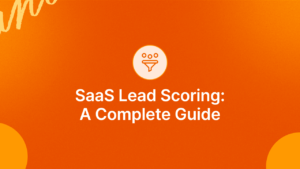Managing finances is crucial for small businesses. The right tools can make a big difference.
Running a small business involves many tasks, and accounting is one of the most important. Proper accounting ensures smooth cash flow, helps in tax preparation, and keeps the business compliant with regulations. But, finding the best accounting tools can be overwhelming with so many options available.
The right tool can save time and reduce errors, making it easier to focus on growing the business. In this blog post, we’ll explore some of the top accounting tools designed for small businesses. These tools offer user-friendly interfaces, essential features, and affordability, making them ideal for small business owners. Let’s dive in and find the perfect accounting solution for your needs.

Credit: www.moneypenny.com
Introduction To Accounting Tools
Small businesses face many challenges. Managing finances is one of them. This is where accounting tools help. These tools simplify bookkeeping tasks. They also save time and reduce errors.
Accounting tools come in various forms. Some are simple, while others offer advanced features. They cater to different business needs. Understanding their benefits can help in choosing the right one.
Importance For Small Businesses
Accounting tools are essential for small businesses. They help keep track of income and expenses. This is crucial for financial health. Accurate records support better decision-making. They also ensure compliance with tax laws.
Without proper accounting, businesses may face problems. Errors in records can lead to penalties. Poor financial management can hurt growth. Thus, using the right tools is vital for success.
Key Benefits
There are many benefits of using accounting tools. They automate repetitive tasks. This saves time and reduces manual errors. Tools provide real-time financial insights. This helps in making informed decisions.
Many tools offer reporting features. These reports help in understanding business performance. Tracking cash flow becomes easier. This ensures better financial planning.
Accounting tools often integrate with other software. This streamlines operations. It also improves overall efficiency. In summary, they offer many advantages to small businesses.
Learn more about Accounting and Finance with this detailed and informative content. Top Budget Management Apps for Startups: Boost Financial Efficiency
Quickbooks
QuickBooks is a popular accounting tool for small businesses. It offers a range of features to help manage finances efficiently. Many small business owners trust QuickBooks for its reliability and ease of use. Let’s explore its features, pricing, and pros and cons.
Features
QuickBooks provides many features for small businesses. Track income and expenses with ease. Generate detailed financial reports quickly. Manage invoices and payments effortlessly. QuickBooks also integrates with various apps. This helps streamline your business processes. The tool supports payroll management too. It simplifies tax calculations and filings.
Pricing
QuickBooks offers several pricing plans. The Simple Start plan costs $25 per month. The Essentials plan costs $50 per month. The Plus plan costs $80 per month. The Advanced plan costs $180 per month. Each plan includes a 30-day free trial. This allows you to try the features before committing.
Pros And Cons
Pros:
- Easy to use interface
- Comprehensive financial reports
- Strong integration with other apps
- Efficient payroll management
- Good customer support
Cons:
- Can be expensive for some businesses
- Occasional software updates can cause issues
- Limited customization options
- Learning curve for new users
Xero
Xero is a popular accounting software designed for small businesses. It offers a range of features that make accounting easier and more efficient. Whether you are a freelancer or a small business owner, Xero can help you manage your finances effectively.
Features
Xero comes with a variety of features that cater to different business needs:
- Invoicing: Create and send professional invoices quickly.
- Bank Reconciliation: Automatically import and categorize bank transactions.
- Expense Tracking: Track and manage expenses effortlessly.
- Inventory Management: Keep track of stock levels and set up alerts.
- Payroll: Manage employee payroll and stay compliant with tax laws.
- Financial Reporting: Generate detailed financial reports to gain insights.
Pricing
Xero offers several pricing plans to suit different business needs:
| Plan | Features | Price |
|---|---|---|
| Starter | Basic invoicing, quotes, and reconciliation | $20/month |
| Standard | All Starter features + bills and payments | $30/month |
| Premium | All Standard features + multi-currency support | $40/month |
Enhance your knowledge on Accounting and Finance by exploring this related piece. Comparison of Accounting Software for Freelancers: Best Picks
Pros And Cons
Every tool has its strengths and weaknesses. Here are the pros and cons of using Xero:
- Pros:
- User-friendly interface
- Comprehensive features
- Scalable pricing plans
- Strong customer support
- Integration with other apps
- Cons:
- Limited features in the Starter plan
- Learning curve for new users
- Higher cost for advanced features
- Occasional system updates causing temporary downtime

Credit: ossisto.com
Freshbooks
FreshBooks is a popular accounting software that caters to small businesses. It offers a user-friendly interface and a range of features to streamline accounting processes. With FreshBooks, small business owners can manage their finances efficiently. Let’s delve into its features, pricing, and pros and cons.
Features
FreshBooks offers a robust set of features designed for small businesses:
- Invoicing: Create professional invoices easily.
- Expense Tracking: Track expenses with ease.
- Time Tracking: Log hours and bill clients accurately.
- Reports: Generate detailed financial reports.
- Payments: Accept online payments directly from invoices.
- Project Management: Manage projects and collaborate with team members.
Pricing
FreshBooks offers several pricing plans:
| Plan | Monthly Cost | Features |
|---|---|---|
| Lite | $15 | 5 billable clients, unlimited invoices, expense tracking |
| Plus | $25 | 50 billable clients, recurring billing, payments and proposals |
| Premium | $50 | Unlimited billable clients, advanced features |
Pros And Cons
Consider these pros and cons before choosing FreshBooks:
Pros:
- Easy to use interface
- Comprehensive invoicing and expense tracking
- Good customer support
- Flexible pricing plans
Cons:
- Limited customization options
- Higher cost for larger businesses
- No inventory management features
Wave
Wave is a comprehensive accounting tool designed for small businesses. It offers a suite of financial services that cater to the needs of entrepreneurs and freelancers. With its user-friendly interface and robust features, Wave helps manage your finances effortlessly.
Features
Wave boasts a range of features that make it an ideal choice for small business owners.
- Invoicing: Create and send professional invoices within minutes.
- Expense Tracking: Easily track your business expenses and receipts.
- Bank Reconciliation: Sync your bank accounts for seamless reconciliation.
- Reporting: Generate detailed financial reports to understand your business better.
- Multi-Currency: Manage transactions in multiple currencies effortlessly.
Interested in Accounting and Finance? We've got you covered with this resourceful post. How to Manage Business Finances With Software: Boost Efficiency
Pricing
Wave offers a competitive pricing structure that is ideal for small businesses.
| Service | Price |
|---|---|
| Accounting | Free |
| Invoicing | Free |
| Receipt Scanning | Free |
| Payments | 2.9% + $0.30 per transaction |
| Payroll | Starts at $20/month + $6 per employee |
Pros And Cons
Wave has several advantages and a few drawbacks, making it important to consider both before deciding.
| Pros | Cons |
|---|---|
| Free accounting software | Limited customer support |
| User-friendly interface | No inventory management |
| Comprehensive invoicing features | Additional cost for advanced features |
| Strong financial reporting | Limited integration options |
Zoho Books
Choosing the right accounting tool is vital for small businesses. Zoho Books is a popular choice. It offers a comprehensive suite of features. It can help streamline your financial tasks.
Features
Zoho Books is packed with features designed for small businesses.
- Invoicing: Create, send, and track invoices easily.
- Expense Tracking: Record and categorize expenses.
- Bank Reconciliation: Automatically match transactions with bank statements.
- Project Management: Track project expenses and manage budgets.
- Inventory Management: Keep track of stock and manage orders.
- Sales Orders: Manage sales orders and streamline the sales process.
- Purchase Orders: Create and manage purchase orders.
Pricing
Zoho Books offers flexible pricing plans to fit different needs.
| Plan | Monthly Cost | Annual Cost |
|---|---|---|
| Basic | $9 | $90 |
| Standard | $19 | $190 |
| Professional | $29 | $290 |
Pros And Cons
Every tool has its strengths and weaknesses. Let’s break them down:
Pros:
- Easy to use interface.
- Comprehensive reporting features.
- Excellent customer support.
- Scalable for growing businesses.
Cons:
- Limited customization options.
- Some features may be overwhelming for beginners.
- Mobile app could be more intuitive.
Comparing The Tools
Choosing the right accounting tools for your small business can be daunting. To simplify this, we compare the most popular tools based on key features. These features include ease of use, integration options, and customer support. This comparison will help you make an informed decision.
Ease Of Use
Small business owners often lack advanced accounting skills. An easy-to-use tool is essential. Let’s look at how these tools perform:
- QuickBooks: User-friendly with a clean interface. Suitable for beginners.
- FreshBooks: Simple and intuitive. Ideal for non-accountants.
- Xero: Modern and easy to navigate. Good for tech-savvy users.
Integration Options
Your accounting tool should work well with other software. Here’s a comparison of integration capabilities:
| Tool | Integration Options |
|---|---|
| QuickBooks | Integrates with over 650 apps |
| FreshBooks | Connects with 100+ apps |
| Xero | Supports more than 800 apps |
Customer Support
Good customer support can save you time and frustration. Here’s how each tool fares:
- QuickBooks: Offers 24/7 support via chat and phone.
- FreshBooks: Provides email and phone support during business hours.
- Xero: Has 24/7 email support. No phone support available.
Choosing the right tool involves considering these aspects. Ensure it fits your business needs and skills.

Credit: www.londondaily.news
Choosing The Right Tool
Choosing the right accounting tool is crucial for small businesses. A good tool can save time, reduce errors, and improve financial management. But how do you find the perfect fit? Let’s explore some key factors to consider.
Assessing Business Needs
First, understand your business needs. Do you require basic bookkeeping or advanced features? List the tasks you need the tool to handle. Consider invoicing, expense tracking, and payroll management. Identify must-have features to ensure the tool meets your requirements.
Budget Considerations
Next, look at your budget. Accounting tools vary in price. Some offer free plans with limited features. Others have monthly or annual fees. Compare the costs and benefits. Choose a tool that fits within your financial limits.
Scalability
Think about the future. Your business may grow. Will the tool scale with you? Look for tools that offer different plans. Ensure they can handle more users, transactions, and features as you expand. Choosing a scalable tool saves you from switching later.
Frequently Asked Questions
What Are The Top Accounting Tools For Small Businesses?
The top accounting tools for small businesses include QuickBooks, Xero, FreshBooks, Zoho Books, and Wave. These tools offer features like invoicing, expense tracking, and financial reporting.
How Does Quickbooks Help Small Businesses?
QuickBooks helps small businesses by simplifying accounting tasks. It offers invoicing, expense tracking, and payroll management. It also provides financial reporting and integrates with various other business tools.
Is Xero Suitable For Small Businesses?
Yes, Xero is suitable for small businesses. It offers features like invoicing, bank reconciliation, and expense management. Xero also provides real-time financial data and integrates with many third-party apps.
Why Should Small Businesses Use Freshbooks?
Small businesses should use FreshBooks because it simplifies invoicing and expense tracking. FreshBooks also offers time tracking and project management features. Its user-friendly interface makes it easy to use.
Conclusion
Choosing the right accounting tool can transform small business management. These tools simplify tasks, save time, and improve accuracy. They help track expenses, generate invoices, and manage payroll. A good accounting tool is essential for business growth. It supports better decision-making and financial planning.
With the right tool, businesses stay organized and compliant. Explore these tools to find the best fit for your needs. Your business deserves the best support. Start today, and see the difference.











